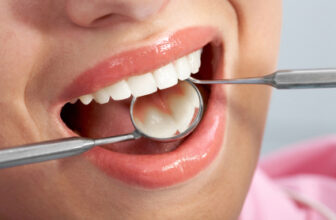
Oral health is not just about maintaining a bright smile or fresh breath—it has a profound impact on your overall health. While many people understand the importance of brushing, flossing, and regular dental checkups, fewer realize how closely oral health is linked to the well-being of the entire body. Ignoring dental hygiene can lead to more than just cavities or gum disease; it can increase the risk of serious health conditions like heart disease, diabetes, and even certain types of cancer. Understanding this connection underscores the importance of taking care of your teeth and gums
The Mouth: A Gateway to the Body
Your mouth is teeming with bacteria, most of which are harmless and help maintain a healthy balance. However, without proper oral hygiene, harmful bacteria can grow unchecked, leading to infections and diseases like tooth decay and gum disease (periodontitis). The mouth is the entry point to the digestive and respiratory systems, and if harmful bacteria from the mouth enter the bloodstream, they can spread to other parts of the body.
When the protective barrier of the gums is broken by gum disease, bacteria can enter the bloodstream and travel to other organs, causing inflammation or infection. This is one way oral health impacts overall health.To prevent this, it’s important to maintain good oral hygiene and visit a dentist near you regularly for checkups and cleanings.
Oral Health and Heart Disease
One of the most well-established links between oral health and overall health is its connection to heart disease. Studies have shown that people with gum disease are almost twice as likely to have coronary artery disease compared to those with healthy gums.
The theory is that inflammation caused by gum disease increases inflammation throughout the body, which can lead to the formation of arterial plaques and increase the risk of heart attack or stroke. This systemic inflammation is a significant factor in cardiovascular diseases, and maintaining oral health can help reduce these risks.
Diabetes and Oral Health
People with diabetes are more prone to infections, including gum disease. But the relationship between diabetes and oral health goes both ways. Severe gum disease can make it harder to control blood sugar levels, which can, in turn, lead to the progression of diabetes. Regular dental care is essential for people with diabetes because managing gum disease can help stabilize blood sugar levels and prevent further complications.
Diabetes also slows the healing process, making it more difficult for the body to recover from oral infections. This highlights the importance of preventing gum disease and treating it promptly in diabetic patients.
Respiratory Infections and Oral Health
Harmful bacteria from the mouth can also be aspirated into the lungs, leading to infections such as pneumonia. This is especially concerning for older adults and individuals with compromised immune systems. Poor oral health has been linked to an increased risk of respiratory infections, particularly in nursing home residents and those with chronic respiratory diseases.
Pregnancy and Oral Health
Pregnant women are also at risk for oral health issues due to hormonal changes that increase susceptibility to gum disease. Pregnancy-related gum disease, or pregnancy gingivitis, has been linked to premature birth and low birth weight. Maintaining good oral hygiene during pregnancy can help reduce these risks and improve overall maternal health.
It is essential for pregnant women to have regular dental checkups to prevent and treat gum disease, ensuring both their health and the health of their baby. A visit to Glenmore Family Dental Care can be a proactive step toward better pregnancy outcomes.
Cancer Risks and Oral Health
Research has suggested a possible link between oral health and certain cancers. While the evidence is still emerging, some studies indicate that gum disease may increase the risk of developing cancers such as pancreatic cancer. Chronic inflammation caused by poor oral health is thought to be a contributing factor, as inflammation is known to play a role in the development of many types of cancer.
Regular dental checkups can help identify and treat gum disease early, reducing the risk of chronic inflammation that may contribute to cancer development.
How to Protect Your Oral and Overall Health
Given the clear link between oral health and overall health, maintaining good oral hygiene should be a priority. Here are some essential tips to protect both your mouth and your body:
Brush and Floss Daily:
Brushing twice a day and flossing once a day removes harmful bacteria and prevents the buildup of plaque, which can lead to gum disease and tooth decay.
Regular Dental Checkups:
Seeing your dentist every six months allows for early detection and treatment of oral health issues before they become more severe and impact your overall health.
Quit Smoking:
Smoking is a significant risk factor for gum disease, oral cancer, and other systemic health problems. Quitting smoking improves both your oral and overall health.
Eat a Healthy Diet:
A diet rich in fruits, vegetables, and whole grains provides essential nutrients for healthy gums and teeth while reducing the risk of systemic diseases linked to poor nutrition.
Manage Stress:
Chronic stress can weaken the immune system, making you more susceptible to infections, including oral infections. Practice stress-reducing activities to protect both your oral and general health.
Conclusion
Oral health is an integral part of overall health, and neglecting your teeth and gums can have far-reaching consequences for your entire body. From heart disease and diabetes to respiratory infections and pregnancy complications, the effects of poor oral hygiene are significant. By practicing good oral hygiene and keeping up with regular visits to a dentist, you can help protect not just your smile, but your entire well-being.
If you haven’t had a dental checkup in a while, it’s time to make an appointment with your trusted dentist in SE Calgary, and take charge of both your oral and overall health.







